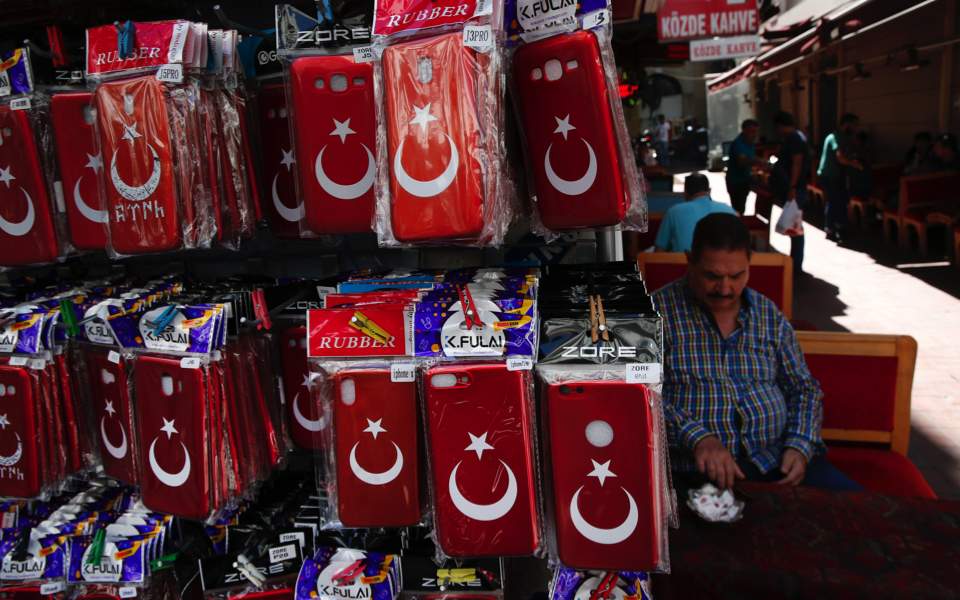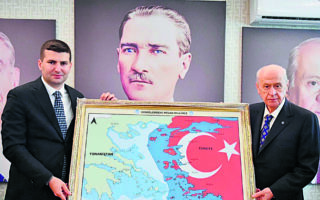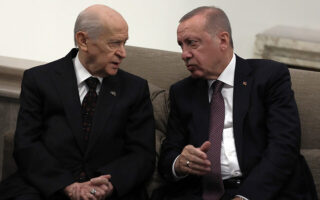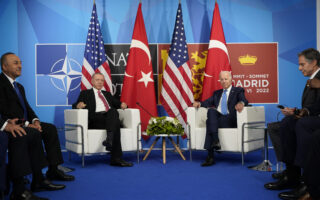The uncertainty of Turkish strategic autonomy

An article by Admiral Alexandros Diakopoulos, the former national security adviser to the Greek prime minister, and Nikos Stournaras, research assistant at the Hellenic Foundation for European and Foreign Policy (ELIAMEP), titled “Turkey’s quest for strategic autonomy,” is a much-needed surprise for those who rely on Greece’s allies at a difficult time.
However, the unpleasant awakening has not been accompanied by alternative predictions that can curtail the self-confidence of Turkey’s decision-makers.
And first of all, Sunni Islam’s predominance reminds us of the numerous Turkish failures in countries hostile to Islamic fanaticism, such as the current regime of Egypt. It is also reminiscent of rival countries, such as Saudi Arabia, which is strengthening Wahhabism.
The ideal, for Turkey, symbiosis of its NATO membership with its pro-Russian policy, is by its very nature incompatible and therefore will not last long. That flexible secretary-general of NATO, Jens Stoltenberg, who was criticized by retired career diplomat Petros Molyviatis in an open letter published in Kathimerini, may push the Europeans into creating a security system that will free us from the blackmail of Turkish President Recep Tayyip Erdogan and Foreign Minister Mevlut Cavusoglu over the entry of new members into the North Atlantic Alliance. It will also rid Europe of Turkey itself, which, as an ally of Russia and a member of NATO, will lead the organization into ceaseless impasses.
The relationship with Moscow will not lead Ankara to more strategic autonomy vis-a-vis the West, but to a greater confusion of responsibilities between post-Ukraine war Russia and the post-Erdogan regime that may emerge after the 2023 elections.
When Russia has reached its strategic limits in a ravaged Ukraine and with no prospect of further expansion in Eastern Europe, the EU will remember the inflation plaguing its economy. In a few years Russia will still be struggling to fill the gap it caused in the energy market with the war against Ukraine.
The ideal, for Turkey, symbiosis of its NATO membership with its pro-Russian policy, is by its very nature incompatible and therefore will not last long
With the gradual impoverishment of Vladimir Putin’s – or any other oligarch’s – Russia, which allies will Turkey rely on to realize its strategic autonomy? If indeed Ankara aspires to lead the world of Sunni Islam, wouldn’t Turkey have to consider the competition from Shiite Iran, or the Iraqi war against ISIS that wiped out the fanatic Sunnis in Mosul?
Turkey’s planned incursion into Syria to push Kurdish forces from its southern borders and expand the buffer zone is surely already being reconsidered.
In Madrid, the US president sought to hold Erdogan’s aspirations regarding Syria, as well as the Aegean, in check. Turkey’s decision to drop its objections regarding two Scandinavian nations’ accession to NATO could mark the end of Ankara’s opportunistic neutrality.
Turkey is exercising a precarious balance, a feat which comes with a due date. The country’s strategic autonomy is history.
Thanos Veremis is professor emeritus of political history at the University of Athens and vice president of the Hellenic Foundation for European and Foreign Policy (ELIAMEP).





